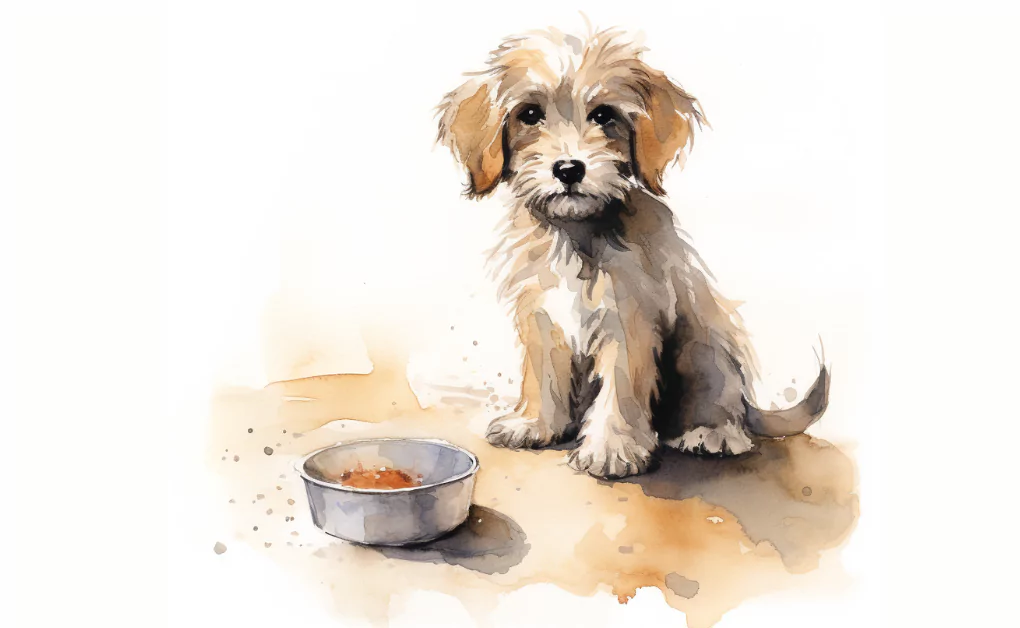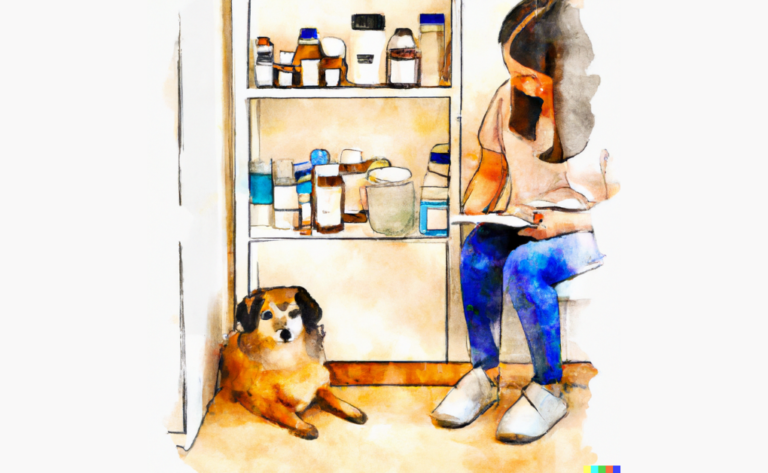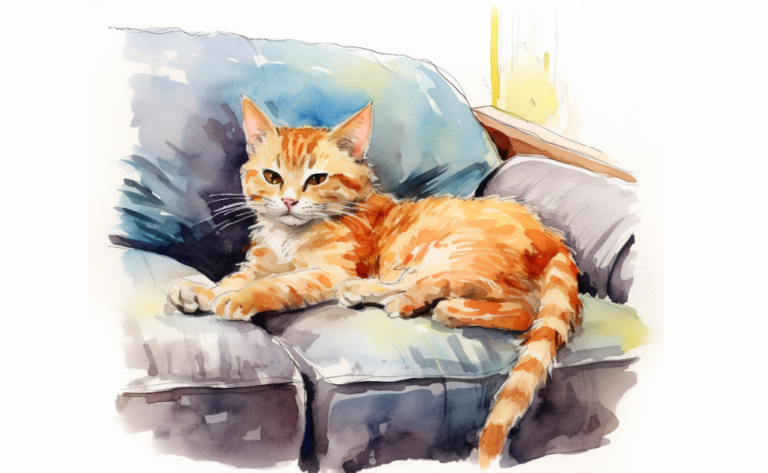The Connection Between Canine Heart Disease and Grain-Free Dog Food
In recent years, grain-free dog food has gained popularity among pet owners seeking a healthier diet for their furry companions. However, this trend has led to an unexpected increase in cases of canine heart disease. This blog post will explore the link between grain-free dog food and canine heart disease, the implications for pet owners, and alternative diet options for your dog’s well-being.
Understanding Canine Dilated Cardiomyopathy (DCM)
Canine Dilated Cardiomyopathy (DCM) is a severe heart condition that affects dogs. In this disease, the heart muscle becomes weakened and stretched, resulting in an enlarged heart that cannot pump blood efficiently. Over time, this impaired function can lead to congestive heart failure, irregular heartbeats (arrhythmias), and even sudden death.
While the exact cause of DCM is not entirely understood, several factors may contribute to its development, including genetic predisposition, nutritional deficiencies, and certain infections. Some dog breeds, such as Doberman Pinschers, Boxers, and Great Danes, are more prone to developing DCM due to genetic factors.
Recent studies have identified a potential link between grain-free dog food and an increased risk of DCM in dogs not typically prone to the disease. In addition, it is believed that the ingredients used in some grain-free diets, such as legumes, may interfere with absorbing essential nutrients like taurine, which is crucial for maintaining heart health.
Recognizing the early signs of DCM is crucial for prompt veterinary intervention. Symptoms may be similar to respiratory issues such as fatigue, weakness, coughing, difficulty breathing, and fainting. If you notice any of these signs in your dog, consult your veterinarian immediately for a thorough evaluation and appropriate treatment options.
The Rise of Grain-Free Dog Food and Its Impact on Canine Nutrition

In recent years, grain-free dog food has gained popularity as pet owners have sought alternative diets to address their dogs’ allergies, sensitivities, and other health issues. However, a possible connection between grain-free diets and canine heart disease has emerged, raising concerns in the veterinary community.
The potential link between grain-free dog food and canine heart disease, specifically Dilated Cardiomyopathy (DCM), was first identified when an increase in DCM cases was observed in dog breeds not typically predisposed to the condition. Research conducted by veterinary cardiologists and nutritionists suggested that specific grain-free diets might play a role in these cases.
One of the factors believed to contribute to the development of DCM in dogs fed grain-free diets is the presence of legumes, such as peas, lentils, and chickpeas. These ingredients are often used as substitutes for grains, providing carbohydrates and protein in grain-free dog food. However, these legumes might be thought to interfere with absorbing essential nutrients like taurine, an amino acid crucial for maintaining heart health.
Taurine deficiency has been linked to DCM in certain dog breeds. While some dogs can produce taurine from other amino acids in their diet, others rely on obtaining it directly from the food they consume. Therefore, if the grain-free diet interferes with taurine absorption or synthesis, it could lead to a deficiency that results in DCM.
Not all grain-free dog foods are linked to an increased risk of DCM, and further research is needed to fully understand the relationship between grain-free diets and canine heart disease. If you are concerned about your dog’s diet and its potential impact on their heart health, consult your veterinarian for guidance on the best diet for your pet’s needs.
How Taurine Deficiency Contributes to Dilated Cardiomyopathy in Dogs
Taurine is an essential amino acid that plays a crucial role in various physiological processes in dogs, including the proper functioning of the heart muscle. Taurine deficiency has been linked to developing dilated cardiomyopathy (DCM) in dogs. DCM is a severe heart condition characterized by the enlargement and weakening of the heart’s chambers, which impairs its ability to pump blood efficiently throughout the body.
A taurine deficiency can contribute to DCM in several ways.
- Taurine plays a critical role in maintaining the integrity of the heart muscle cells, ensuring their proper functioning. When taurine levels are low, the heart muscle cells may weaken and stretch, enlarging and thinning the heart’s walls. This results in the reduced ability of the heart to contract and pump blood effectively.
- Taurine regulates calcium levels within heart muscle cells, essential for proper muscle contraction. Therefore, a taurine deficiency can disrupt calcium regulation, impairing the heart’s ability to contract and function correctly.
- Taurine has antioxidant properties that help protect the heart muscle cells from oxidative stress and damage. Therefore, a taurine deficiency may leave the heart more susceptible to damage, contributing to the development of DCM.
It’s essential to ensure that dogs receive adequate taurine in their diet, particularly for those breeds predisposed to DCM. In addition, some grain-free dog foods have been associated with lower taurine levels, which can contribute to the development of DCM. Therefore, it’s crucial to consult your veterinarian and choose a nutritionally balanced diet for your dog to support their overall heart health.
Recognizing the Signs of Canine Heart Disease
Dog owners must recognize their pets’ early signs of heart disease to seek prompt veterinary care. Symptoms may include fatigue, weakness, coughing, difficulty breathing, and fainting. If you notice any of these signs in your dog, especially if they are on a grain-free diet, consult your veterinarian immediately.
Tips for Choosing the Right Grain-Free Diet for Your Dog
- Consult your veterinarian: Before making any changes to your dog’s diet, consult your veterinarian to ensure the new food meets your dog’s specific nutritional needs and to discuss any potential risks.
- Look for high-quality, well-balanced ingredients: Choose a grain-free dog food with a high-quality protein source as the first ingredient and avoid artificial additives, colors, and preservatives.
- Check for taurine levels: Since low taurine levels are associated with DCM, ensure the grain-free dog food has adequate taurine content or consider supplementing your dog’s diet with taurine.

- Research the dog food brand: Look for reputable brands with a history of producing high-quality, nutritionally balanced products. Check for any recalls or issues associated with the brand.
- Monitor your dog’s health: Regularly observe your dog’s overall health, energy levels, and weight. If you notice any changes or concerns, consult your veterinarian immediately.
- Regular veterinary check-ups: Schedule regular check-ups with your veterinarian to monitor your dog’s heart health, especially if your dog is on a grain-free diet. Early detection of any potential issues can help prevent the development of severe health problems.
Considering Alternative Diets for Your Dog’s Health
When considering alternative diets for your dog’s health, it’s essential to consult with a veterinarian or a pet nutrition expert to ensure the diet meets your dog’s specific needs. Some alternative diets that you might consider include:
- Limited ingredient diets: These diets contain fewer ingredients, which can help identify and avoid specific allergens or intolerances. Limited-ingredient diets often focus on single protein and carbohydrate sources.
- Raw diets: Raw diets, also known as biologically appropriate raw food (BARF) or species-appropriate diets, consist of raw meat, bones, fruits, and vegetables. Advocates of raw diets argue that they are more natural and can provide better nutrition. However, it’s essential to be aware of potential risks, such as bacterial contamination, and to ensure the diet is nutritionally balanced.
- Home-cooked diets: Preparing home-cooked meals for your dog allows you to control the ingredients and quality of their food. However, providing a nutritionally balanced diet can only be challenging with expert guidance. Consulting with a veterinarian or pet nutritionist ensures your dog receives all the necessary nutrients.
- Hydrolyzed protein diets: These diets contain proteins broken down into smaller, more easily digestible particles. They can be beneficial for dogs with food allergies or sensitivities.
- Vegetarian or vegan diets: Some pet owners consider feeding their dogs a vegetarian or vegan diet for various reasons, such as ethics or environmental concerns. However, it’s crucial to ensure that these diets provide complete and balanced nutrition, as dogs have specific dietary requirements that may be challenging to meet without animal-based ingredients.
When considering alternative diets, it’s crucial to prioritize your dog’s health and nutritional needs. Regular veterinary check-ups and monitoring your dog’s health can help ensure their diet meets their needs and supports their overall well-being.
Frequently Asked Questions
Disclaimer: The information provided on this veterinary website is intended for general educational purposes only and should not be considered as a substitute for professional veterinary advice, diagnosis, or treatment. Always consult a licensed veterinarian for any concerns or questions regarding the health and well-being of your pet. This website does not claim to cover every possible situation or provide exhaustive knowledge on the subjects presented. The owners and contributors of this website are not responsible for any harm or loss that may result from the use or misuse of the information provided herein.







